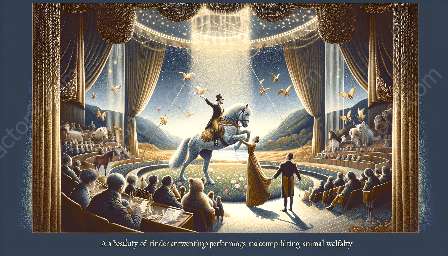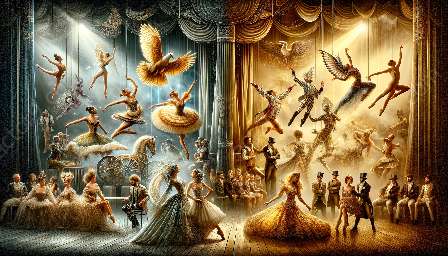Juggling is not only a mesmerizing act in circus arts, but it also has a profound impact on concentration and focus. During juggling training, individuals engage in a unique combination of physical and mental exercise that can significantly enhance their cognitive abilities. This topic cluster aims to explore the effects of juggling on concentration and focus, providing insights into how this skill can improve mental acuity and overall cognitive function. From the basic principles of juggling to its application in circus arts, we will delve into the fascinating world of juggling and its relationship to mental performance.
The Mental Demands of Juggling
At its core, juggling requires intense concentration and focus. Jugglers must coordinate the movements of their hands and track the trajectory of multiple objects simultaneously, all while maintaining a steady rhythm. This intricate process demands exceptional cognitive control and fine-tuned motor skills, making it a mentally stimulating activity.
Furthermore, juggling involves constant visual tracking and spatial awareness, as performers must predict the path of the juggling props to ensure a seamless performance. This mental engagement not only hones attention to detail but also cultivates a heightened sense of spatial cognition, which can have far-reaching benefits beyond the realm of juggling.
Training the Mind Through Juggling
Engaging in regular juggling practice serves as a comprehensive workout for the brain. Studies have shown that juggling can lead to structural changes in the brain, particularly in areas associated with visual and motor coordination, as well as attention and multitasking abilities. This suggests that juggling training can promote neuroplasticity, the brain's ability to reorganize and adapt to new challenges.
Moreover, the mental demands of juggling extend beyond the physical act itself. As individuals progress in their juggling skills, they often develop strategies to optimize their performance, such as rhythm control, pattern recognition, and hand-eye coordination. These cognitive strategies not only enhance juggling proficiency but also translate into improved concentration and focus in other aspects of life.
Enhancing Cognitive Function with Juggling
Beyond the immediate mental challenges, juggling training has been linked to long-term improvements in cognitive function. Research has indicated that regular juggling practice can lead to enhanced working memory, attentional control, and visual perception. These cognitive enhancements are not limited to juggling performances but can also positively impact daily tasks and academic or professional endeavors.
Furthermore, the rhythmic and repetitive nature of juggling can induce a state of flow, a mental state characterized by complete immersion and focused attention. This flow state, often experienced during proficient juggling routines, can significantly boost concentration and productivity, serving as a valuable skill in various domains.
Juggling in Circus Arts and Beyond
Understanding the impact of juggling training on concentration and focus extends beyond its individual practice. In the context of circus arts, juggling represents one of the fundamental skills that contribute to a captivating and dynamic performance. The mental acuity and focus acquired through juggling training synergize with other circus disciplines, creating a cohesive and mesmerizing spectacle.
Moreover, the cognitive benefits of juggling can resonate with individuals from diverse backgrounds. Whether in recreational juggling activities, educational settings, or therapeutic interventions, the potential for improved concentration and focus through juggling offers a valuable avenue for cognitive development and well-being.
Conclusion
Juggling training has a profound impact on concentration and focus, transcending its role as a captivating circus art. By immersing individuals in a multi-faceted mental exercise, juggling enhances cognitive function, cultivates sharper focus, and fosters a heightened sense of awareness. This enduring impact extends beyond the confines of juggling performances, permeating various aspects of life and contributing to overall cognitive well-being.


































